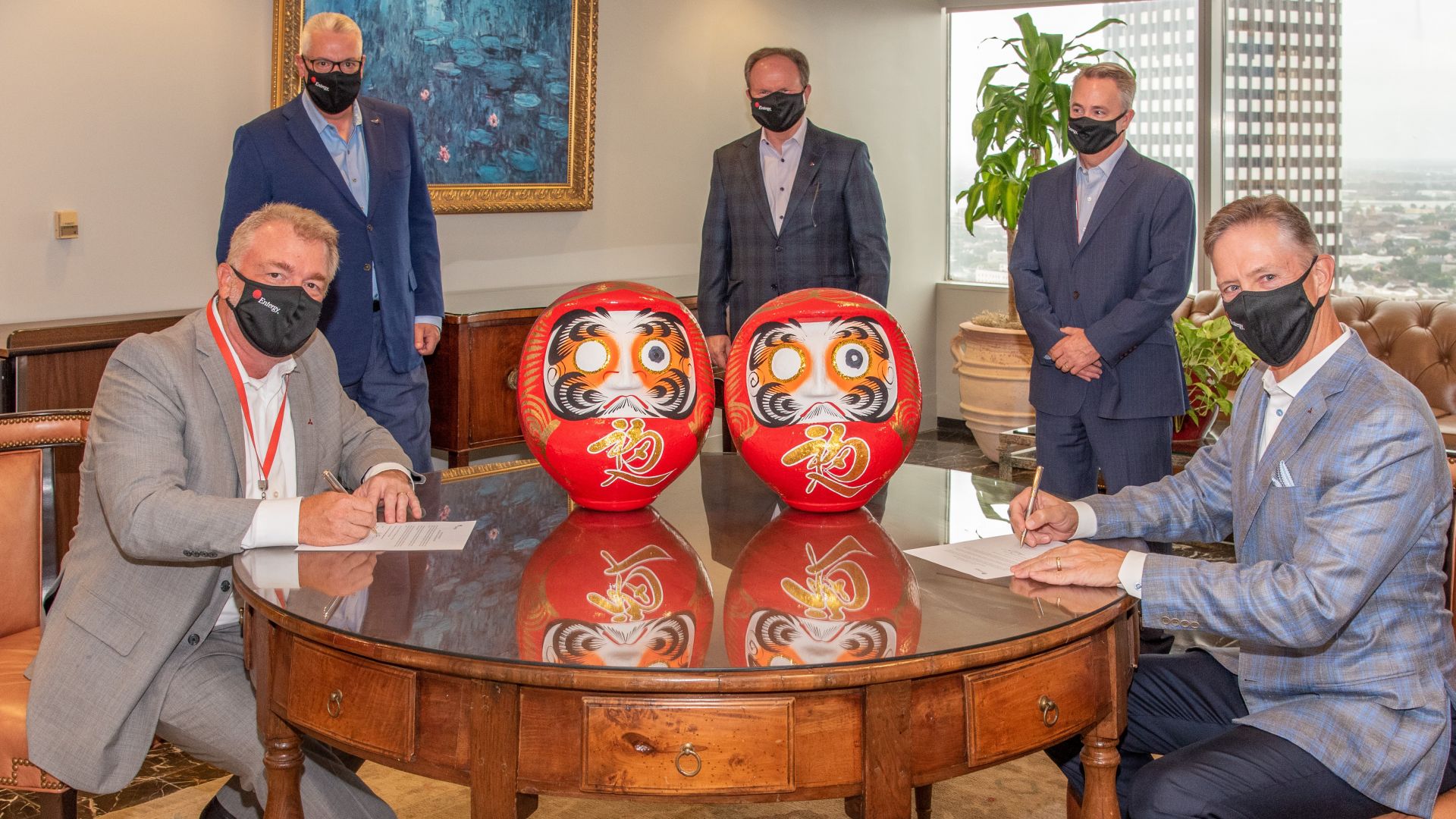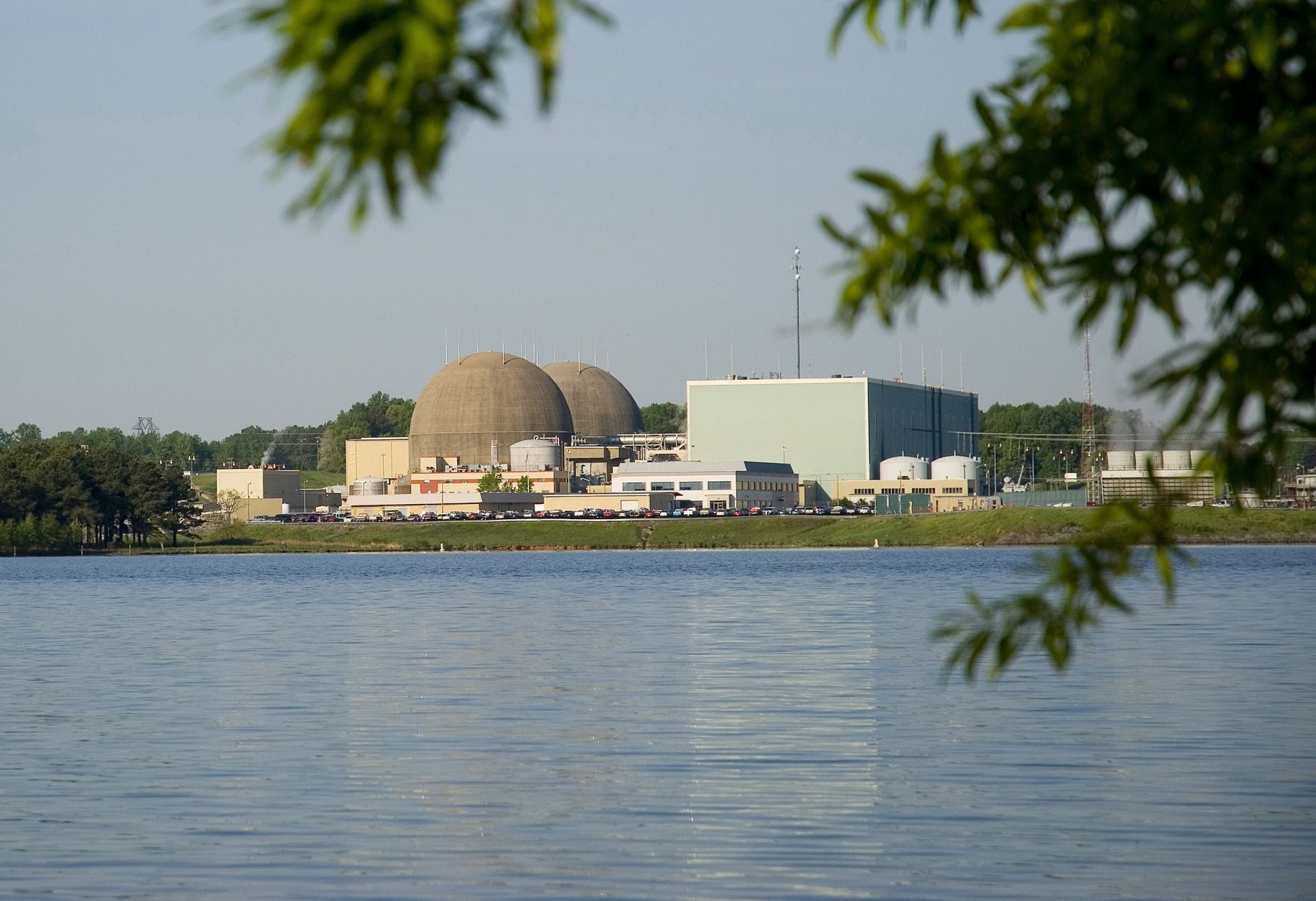The Indian Point nuclear power plant
With a blunt but indisputably accurate headline, an article from yesterday’s New York Times on the imminent closure of Indian Point makes it immediately clear what will happen when Unit 3, the nuclear plant’s last operating reactor, is shut down at the end of this month: The state of New York will be forced to rely more heavily on fossil fuels for electricity generation.
Following the retirement of Indian Point-2 last April, the share of New York’s power coming from gas-fired plants rose to about 40 percent, from about 36 percent in 2019, the piece notes, adding that the share from renewables moved up only slightly, to about 30 percent.
Barakah-1 (right) is now providing reliable and sustainable electricity around the clock. Photo: ENEC
Unit 1 at the United Arab Emirates’ Barakah nuclear power plant has entered commercial operation and is now providing “constant, reliable, and sustainable electricity around the clock,” the Emirates Nuclear Energy Corporation (ENEC) announced this morning. ENEC added that, as a result of the event, the company now leads the largest decarbonization effort of any industry in the UAE.
U.K. government funding for nuclear research and innovation in advanced fuels and recycling is having a significant impact and reenergizing the U.K. research base.
June 12, 2020, 2:55PMNuclear NewsPaul Nevitt, Dave Goddard, and Robin Taylor 
Fig. 1. Geographical spread of U.K. organizations engaged in the U.K. AFCP, including a number of the world leading U.K. universities. Image: NNL
Called “the first significant public investment in a generation,” the U.K. Advanced Fuel Cycle Program (AFCP) is driving innovation to underpin future nuclear deployment in the United Kingdom. Led jointly by the U.K. Department for Business, Energy and Industrial Strategy and the National Nuclear Laboratory (NNL), the program involves more than 40 U.K. organizations, including a number of world-leading U.K. universities (Fig. 1), and is working with international organizations across more than 10 countries, leveraging U.K. investment into more than £100 million in international programs.



 New research indicates
New research indicates
 A new technical report from Montreal-based SNC-Lavalin finds Canada’s stated goal of net-zero carbon emissions by 2050 to be achievable but stresses the importance of immediate action and investment in all forms of low-carbon energy production, including nuclear, hydro, renewables, carbon capture and storage, and hydrogen.
A new technical report from Montreal-based SNC-Lavalin finds Canada’s stated goal of net-zero carbon emissions by 2050 to be achievable but stresses the importance of immediate action and investment in all forms of low-carbon energy production, including nuclear, hydro, renewables, carbon capture and storage, and hydrogen. Just released by a group called 18 for 0, the 47-page preliminary study
Just released by a group called 18 for 0, the 47-page preliminary study  Declaring small modular reactors to be “the next innovation that will help us reach net-zero emissions by 2050,” Canadian Minister of Natural Resources Seamus O’Regan last week introduced his government’s
Declaring small modular reactors to be “the next innovation that will help us reach net-zero emissions by 2050,” Canadian Minister of Natural Resources Seamus O’Regan last week introduced his government’s  The Atlantic Council’s Global Energy Center has issued a report,
The Atlantic Council’s Global Energy Center has issued a report, 
 A recently published paper on clean energy policy for economic recovery calls for the preservation of the current U.S. nuclear reactor fleet and the deployment of advanced nuclear technologies.
A recently published paper on clean energy policy for economic recovery calls for the preservation of the current U.S. nuclear reactor fleet and the deployment of advanced nuclear technologies.

 Duke Energy Progress and Duke Energy Carolinas have filed their 2020 Integrated Resource Plans (IRPs) with state regulators, parent company Duke Energy announced September 1.
Duke Energy Progress and Duke Energy Carolinas have filed their 2020 Integrated Resource Plans (IRPs) with state regulators, parent company Duke Energy announced September 1.
 House Democrats on June 30 rolled out a vision of what U.S. climate change policy might look like in the event the Democratic party holds its current House majority, retakes the Senate, and wins the White House in November. The vision was presented in the form of a sweeping 547-page majority staff report entitled
House Democrats on June 30 rolled out a vision of what U.S. climate change policy might look like in the event the Democratic party holds its current House majority, retakes the Senate, and wins the White House in November. The vision was presented in the form of a sweeping 547-page majority staff report entitled 